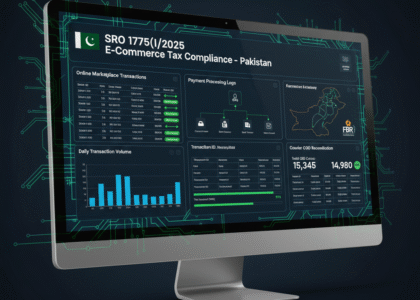Taxation of Associations of Persons (AOPs) – Complete Section 92 Guide
Associations of Persons (AOPs) are one of the most widely used business structures in Pakistan,


Associations of Persons (AOPs) are one of the most widely used business structures in Pakistan,

Real estate continues to be one of Pakistan’s most active investment sectors, but it is



A Legal & Tax Commentary Introduction Download original S.R.O. 1775(I)/2025 On 10 September 2025, the

Real estate transactions in Pakistan often attract capital gains tax under the Income Tax Ordinance,